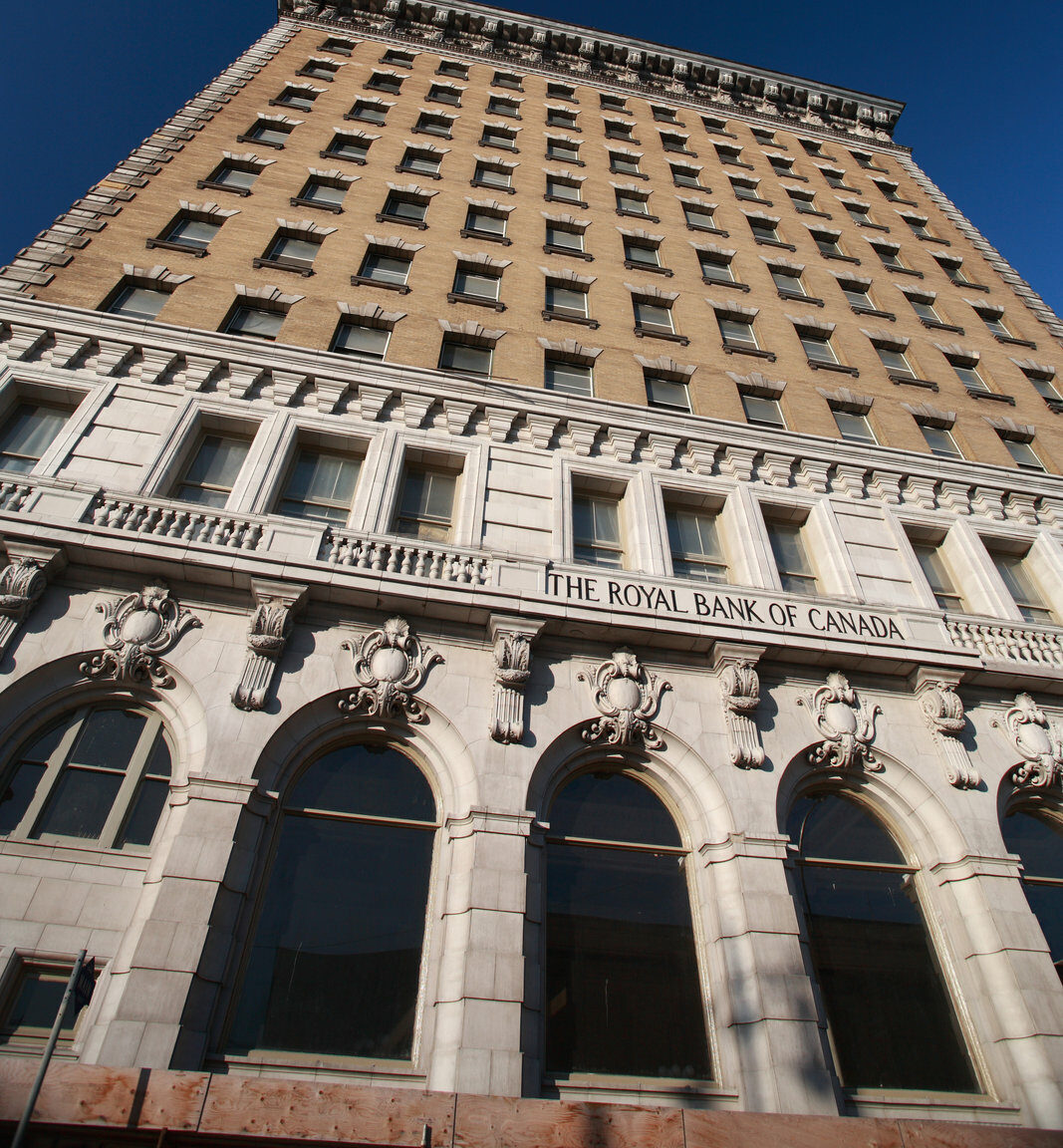The Ins and Outs of Canada’s Limited Housing Supply
One of the chief issues behind Canada’s high real estate prices is limited housing supply. More and more data show that construction just isn’t keeping up with demand.
But what is causing Canada’s housing crunch? There are many factors ranging from the types of dwellings being built to population growth.
Focus On Apartments And Condos
Although housing development is booming in many cities, there is often more focus on apartment buildings and condominiums. While these are important, especially for first-time buyers, these types of homes don’t always fit the demand.
In an interview for BNN Bloomberg, Bob Dugan, chief economist at the Canadian Mortgage and Housing Corporation (CMHC) noted there is a mismatch between current developments and the needs of many Canadians.
“We have a lot of very small units that aren’t necessarily suitable for families,” he said. “There’s a real lack of say, three-bedroom units being built in urban areas.”
In a recent article for the Fraser Institute, authors Josef Filipowicz, urban and regional policy specialist, and Steve Lafleur, an independent public policy analyst, echoed similar sentiments. They point out that ground-oriented homes (not apartments and condos) sold at the highest volumes during the pandemic. But in the 2010s, this type of development had the fewest completions since the 1960s.
This keeps the demand – and prices – for family homes high.
Land Use Regulations
Land use regulations are necessary to manage city planning and reduce urban sprawl. However, these regulations can significantly slow down or even reduce new housing.
A study by the Fraser Institute found that municipalities with more regulations did in fact grow less. Long project approval times, uncertainty around timelines, and community opposition had the most impact on reducing supply.
Population Growth
According to a report from the Canadian Imperial Bank of Commerce (CIBC), 58% of new Canadian permanent residents in 2022 were new to the country – not already in Canada on student visas, for example. The report authors estimate this increased housing demand by 108%.
The federal government’s new immigration targets could make the situation worse. In November of 2022, the federal government announced it would seek to accept 500,000 new permanent residents annually by 2025. This represents a 75% increase from pre-pandemic levels.
According to Statistics Canada, there were 437,180 new permanent residents in 2022. There were also 607,000 non-permanent residents who entered the country that year. Canada is leading other G-7 countries in population growth.
In order to keep up with housing demand, the CMHC estimates 5.8 million homes will need to be built by 2030.
What Is Being Done
Awareness of the housing supply issue is growing, with many provincial governments and the CMHC committed to solving the problem.
The Ontario government recently proposed an act designed to increase housing supply faster by giving cities more flexibility to expand their boundaries, among other changes. Critics say this could increase urban sprawl and threaten green belt areas.
Housing starts had a record-breaking year in the Ottawa area last year with 11,032 new units, according to a CMHC report. Of these, over 50% were rental units and condominiums. This is good news for renters, investors, and those new to the housing market.
The Takeaway
Financial markets are complicated and real estate is no exception. There are many factors putting pressure on housing supply and demand today.
However, governments and regulators do seem to be taking this issue seriously. The next few years could see a continued growth in supply that may lower demand and improve the market for buyers.
If you’re thinking of buying one of the new builds in the Ottawa area this year, get in touch! We can take a look at your financial picture and help you reach your goals.
Is Qualifying for a Mortgage About to Get Harder?
Canada’s banking regulator says it is considering whether to extend the scope of its mortgage guidelines to include existing mortgages.
OSFI (Office of the Superintendent of Financial Institutions) is a regulatory body in Canada that supervises and regulates financial institutions to ensure their safety and soundness. Recently, OSFI has proposed some changes to the mortgage rules that lenders must follow.
The proposed changes aim to tighten the mortgage underwriting standards to ensure that borrowers can afford their mortgage payments even if interest rates rise, and to address some of the risks associated with the current hot housing market in Canada.
Some of the key changes include:
- A new minimum qualifying rate, which will be the greater of either the contractual mortgage rate plus 2%, or a new "floor" rate of 5.25%. This means that borrowers will need to show that they can afford to make mortgage payments based on a higher interest rate, even if they are getting a lower rate from their lender.
- A tighter debt service ratio limit for uninsured mortgages, which will be reduced from the current limit of 44% to 42%. This means that borrowers will need to have a higher income relative to their debt payments to qualify for a mortgage.
- Stricter requirements for verifying income and assessing the borrower's ability to repay the mortgage.
Overall, these proposed changes are designed to make it harder for some borrowers to qualify for a mortgage, but they are intended to promote stability in the housing market and reduce the risks associated with high levels of household debt.
Is Now the Time to Buy? - April Update, 2023
When is the best time to buy real estate? 5 year ago and we will say this for the next 100 years. There are several reasons why buyers may want to consider purchasing a home in Canada now, even in a balanced market:
- Interest rates have started to decrease on the fixed rates: Interest rates play a significant role in determining the affordability of a mortgage. With interest rates currently dropping in Canada, buyers may be able to secure lower monthly mortgage payments and potentially save money in the long run.
- Market stability: A balanced market means that there is a relatively equal number of buyers and sellers, which can lead to a more stable market with less volatility in prices. This can provide buyers with more confidence in their purchasing decisions.
- Long-term investment: Real estate is typically viewed as a long-term investment, and historic trends show that real estate in Canada has generally increased in value over time. Purchasing a home now may be a wise investment for buyers looking to build equity and potentially benefit from appreciation in the future.
- Lifestyle considerations: For many buyers, purchasing a home is not just about the financial investment, but also about the lifestyle benefits that come with homeownership. Owning a home can provide a sense of security and stability, and allow buyers to customize their living space to suit their needs.
- Higher rates or equity: When houses were selling at record highs last year, there was little room to make an equity position quickly even with lower rates. Mortgage rates will go up and down but when the rates start to get lower, the market picks back up and gives confidence to buyers and again which increases the values of the homes again. This is the perfect time to jump in and buy. Would you rather stress about rates or create equity in the home value.
Overall, while market conditions should certainly be considered when making a home purchase, there are many factors beyond the current state of the market that may influence a buyer's decision. It's important for buyers to carefully consider their personal circumstances and goals before making any major financial decisions.
Looking to BUY, REFINANCE or RENEW in 2023?
If you are renewing, buying or refinancing in 2023 then make sure to connect with your mortgage broker early so that you can start looking at options. The fixed rates are the lowest they have been in a long time (since the big hikes the past year) and there is a very large spread with fixed and variable.
Many of our clients are looking at short term rates as they have become very popular. Taking a longer-term rate may be tempting because the longer the term you lock into right now, the lower the rate. This means the 4- 5 year fixed rates are the lowest rates you can get now. The shorter-term rates which are 1-3 years are higher right now however they could be more beneficial for cost savings longer term. Variable and adjustable-rate mortgages are sitting at the highest point right now. Here are some reasons to consider a shorter-term mortgage right now:
There are several reasons to consider short-term mortgage rates in 2023:
- Flexibility: Short-term mortgages typically have shorter terms, which can provide borrowers with more flexibility to refinance or sell their home without facing prepayment penalties.
- Hedging Rates: Short-term mortgages can be a great way to hedge your long term interest rates. The overall mortgage rates are the highest we have seen in over a decade and going short term can allow you to get into a potentially lower rate in 2 to 3 years when rates start to come down. The commitment is less, and you can start shopping around early. Even though they are priced a bit higher, you can negotiate sooner.
- Mortgage Penalties: If you decided you want to take advantage of a lower rate sooner or need to break the loan for other reasons, then the penalty to break will be much less than trying to break a 5 year fixed.
- Rising home prices: If home prices are increasing rapidly, borrowers may be more willing to take on a short-term mortgage in order to enter the market sooner, with the goal of refinancing or selling once the value of their home has appreciated.
- Mortgage Strategies and Personal Financial Goals: Borrowers may have personal financial goals, such as paying off their mortgage faster or reducing their overall debt, that are better served by a short-term mortgage.
Of course, there are also some potential downsides to short-term mortgages, such as the risk of interest rate fluctuations and the possibility of higher monthly payments if interest rates rise. It's important for borrowers to carefully consider their financial situation and goals when choosing between short-term and long-term mortgages. Having a consultation with our team to understand the pros and cons of different mortgage options and to find the best fit for their needs.
Federal Government Lends A Helping Hand To First-Time Home Buyers
The Government of Canada’s new First Home Savings Account (FHSA) is coming into effect this year. Announced in the 2022 federal budget, the FHSA is a new initiative to help Canadians save towards a downpayment on their first homes.
Although the FHSA is technically now in effect, banks are saying they have to iron out the details and won’t be offering these products until at least summertime.
What Is A First Home Savings Account?
The FHSA is a type of tax-free savings account. Canadians will be able to add up to $8,000 per year. The lifetime limit for these accounts is $40,000.
You aren’t taxed on the money you add to the account, or taxed when you take it out to buy a home.
Who Qualifies?
In order to open an FHSA, you must be a resident of Canada and 18 years of age or older. You must also be a “first-time home buyer.”
According to the Canada Revenue Agency (CRA) you qualify as a “first-time home buyer” if you have not lived in a home you have owned individually or jointly (or your spouse/partner has owned) in the last four years. The same rules apply when you withdraw the money to purchase a home.
What Kinds Of Homes Qualify?
Most homes qualify including condos, townhomes, duplexes, detached houses, and mobile homes.
According to the CRA, the only type of home that doesn’t qualify is, “a share that only provides you with a right to tenancy in the housing unit.” This likely refers to some types of co-operative housing.
Withdrawing Money From FHSAs
Ideally, you will withdraw money from your FHSA when you’re ready to buy a home. Of course, sometimes life gets in the way of even the best-laid plans.
Buying a Home
If you withdraw money from your FHSA to purchase a home, you won’t be taxed on the amount you take out. It’s also important to note that you can combine money from both an RRSP and your FHSA to put towards a down payment.
The home you buy must be in Canada and you need to be a Canadian resident at the time.
When buying, you must qualify as a first-time home buyer, and have an agreement of acquisition or completion of construction. And you can’t have bought the home more than 30 days before making the withdrawal.
You’ll also need to move in (or intend to move in) to the home one year after it is purchased or built.
If You Don’t Withdraw to Buy
You can keep an FHSA open for up to 15 years or until you turn 71, whichever comes first.
If you don’t use the money in an FHSA towards a downpayment on a home, you can transfer it into an RRSP or RRIF account without being taxed. But if you withdraw the money as cash, you do have to claim that amount as income on your taxes.
Pros And Cons
Using an FHSA is dual-purpose, helping you save on taxes while putting money away for a home.
However, there are more strings attached to an FHSA than a Tax-Free Savings Account (TFSA). If you don’t use the money to buy a home, it’s more difficult to withdraw.
In a recent Toronto Star article, financial advisor Tony Sutey explained the FHSA may not be a good option for people earning less than $50,000 per year and recommends a TFSA to those individuals instead.
The Takeaway
The FHSA will be a great way for many Canadians to finance their first homes. But, like any financial product, it may not be a good choice for everyone.
If you’re thinking about buying a home this year and want to explore your options, drop us a line! Buying a home is always easier with experienced professionals in your corner.
Interest Rates - April, 2023
The Bank of Canada left the overnight policy rate at 4.5%, as expected this month, stating their view that inflation will hit 3% by mid-year and reach the 2% target by next year. They admit, however, that demand continues to exceed supply, wage gains are too high, and labour markets are still very tight.The Bank is also continuing its policy of quantitative tightening.
Most economists believe the Bank of Canada will hold the overnight rate at 4.5% for the remainder of this year and begin cutting interest rates in 2024. A few even think that rate cuts will begin late this year.
The movement of interest rates has been at the forefront of the financial market, driving the surge and subsequent cooldown of the 2020 to 2022 housing market. When inflation started to go rampant and the Bank of Canada increased interest rates an additional 2% higher than expected last year, it put a huge dent in the housing bubble. Despite efforts to slow inflation the central banks might need to do more increases. We know that the US has just increased their benchmark rate by .25% in March and with multiple factors like the war in Ukraine, job reports, and high inflation, it has put central bank interest rates under continuous pressure.
The Bank of Canada's meeting on March 8th provided a brief pause in the interest rate hike, giving the financial markets a breather. However, this pause only underscores the tipping point that the market is currently perched upon, with the possibility of inflation or a potential recession. Central banks worldwide are aiming for a "soft landing," but it is easier said than done. This pause is meant to counteract the upward push from the US Federal Reserve, which had initially planned to raise rates by 0.25% or even 0.5%.
The economies of Canada and the US are closely intertwined, and the fluctuation of currency values affects their import and export businesses. If the US interest rates rise higher than Canada's, it could cause a flood of investment and a weaker Canadian dollar. This could make exports, such as oil and gas, more appealing but could also worsen inflation as imports become more expensive.
For people with variable rate mortgages, the Bank of Canada's pause in interest rate hikes is welcome news. However, most new mortgages these days have fixed rates, with a significant gap between fixed and variable rates. In many cases, variable rates are a full 1% to 1.5% higher than fixed rates right now with their bank discounts. Fixed mortgages are closely tied to bond markets, which saw a major decrease the last few weeks – the biggest three-day drop since the early 1980s.
The collapse of SVB, along with Signature Bank and Silvergate sent shockwaves through the financial world, resulting in a nosedive in bond yields, the likes of which we have not seen in almost four decades. With the second and third largest bank failures in the US (SVB and Signature) happening last few weeks, we are seeing a ripple effect. However, experts do not expect this to be a repeat of the 2008 financial crisis, as there are significant differences between SVB's downfall and the events of 2008.
Firstly, this isn't 2008. We are not facing a crisis like we did back then. Secondly, chatter about US bank challenges has slowed down (but not stopped and there are more challenges ahead). But we are not the US. Our banking system is much different up here north of the border. Although when the US sneezes we tend to get a cold, we will be just fine. Sleep well tonight, my friend.
Inflation has cooled again - as of the end of March we were looking at a decline over the previous reporting down to 4.3%. Still high (and food more-so) but on the way down. In fact there are murmurs that the inflation rate could come down to around 3% by the middle of this year and maybe settle at the target 2% by the end of 2024.
Which leads us to interest rates. At its recent last meeting, the Bank of Canada paused on rate leaving it at 4.5%. That's not to say they aren't reserving the right to further increases but we like what we see at this point. There are indications that supply chains are loosening up which helps.
What Is Mortgage Insurance And Do You Need It?
You have car, health, and maybe even life insurance. Do you need mortgage insurance too? For some, the answer is yes. And since it can increase the total cost of your home, it’s good to read up on it before applying for your first mortgage.
What Is Mortgage Insurance?
Mortgage insurance (also called default insurance) protects financial institutions in the event you aren’t able to keep up with mortgage payments and default on the loan.
This is different from optional mortgage insurance which is offered when taking out or renewing a mortgage. Optional insurance policies are in place to help you continue mortgage payments in the event of job loss, critical illness, or death.
Default insurance is provided by the government-run Canadian Mortgage and Housing Corporation (CMHC), or private providers Sagen and Canada Guaranty.
Who Should Have Mortgage Insurance?
Anyone who makes a downpayment of less than 20% on a home that costs up to $1 million is obligated to purchase mortgage insurance. If the home you have set your sights on is over $1 million, you must make a downpayment of at least 20%, in which case mortgage insurance isn’t needed.
For homes under $1 million, the size of downpayments can vary. If you are buying a home that costs less than $500,000, you need to pay at least 5% down. For homes over $500,000, you are expected to pay 5% down on the first $500,000 and 10% on the remainder of the cost. Remember, mortgage insurance is required for any downpayment less than 20%.
How Much Does Mortgage Insurance Cost?
The cost of mortgage insurance depends on the total value of the home and the down payment you make. Insurance costs can range from 2.8%-4% of your mortgage (the total value of the home minus the down payment).
If you buy a more expensive home and want to port your mortgage, the insurance costs can increase to over 6%.
How Is It Paid?
Mortgage insurance is added to your mortgage and you pay it monthly. However, there are some upfront costs. In Ontario, PST is charged on mortgage insurance and you do have to pay it when you purchase the home. If you think you may need this type of insurance, be sure to factor these costs in when budgeting.
Mortgage Insurance Pros and Cons
Making a downpayment of less than 20% can help you get into the housing market earlier. This way, instead of paying rent, you’ll be building equity in a home.
It can also help you avoid being “house poor.” Many people jump into buying a home with a large downpayment only to find they no longer have adequate savings or money for vacations. Paying less money down initially can ensure you have more liquidity.
However, taking out mortgage insurance means you are paying more for your home in the long run.
You also need to qualify for mortgage insurance. This means one more institution will need to evaluate your application. If you think you may need mortgage insurance, consider getting a pre-approval to save time when you’re ready to buy.
The Takeaway
Mortgage insurance has helped many Canadians purchase their homes sooner and it could do the same for you.
If you’re weighing the pros and cons of making a smaller downpayment on a home, give us a call! We can take a customized look at your financial situation and help you come to a decision that’s right for you.
February Home Sales Hint at Recovery
A report recently released by the Canadian Real Estate Association (CREA) showed home sales were up 2.3% in February despite 7.9% fewer homes being listed on the market.
Jill Oudil, Chair of CREA was cautiously optimistic about these numbers. “February’s data contained the potential of a more robust market to come,” she said. She explained the CREA won’t have a full grasp on trends for this year until the busy spring season has arrived.
CREA’s Senior Economist Shaun Cathcart also saw reason to be hopeful about this year’s prospects. He said, “The similarities between 2023 and the recovery year of 2019 continued to emerge in February, with sales up, the market tightening, and month-over-month price declines getting smaller.”
Implications for First Time Buyers
The CREA report stated that on average homes continue to be priced roughly $135,000 less than at the same time last year (excluding Toronto and Vancouver).
For those who have room in their budgets for higher interest rates, and can pass the stress test, this may be a good time to opt in to the market.
But remember that the interest rates on mortgages are currently ranging from 4.6% to 6.2%.
It’s also important to take note of the dip in inventory. If there are fewer houses on the market going forward, buyers may face more competition for homes.
Implications for Current Home Owners
If you already own a home, this latest news from the CREA could mean good things ahead for you too. If the market is poised for recovery, it could mean that the value of your home will be on the rise again.
The lower inventory in February may mean there will be fewer homes on the market this year. If you are thinking of selling, this could put you at an advantage.
If you are also buying, know that competition for homes may be a bit stiffer again this year. Though we hopefully won’t see the crazy bidding wars of 2021.
Home Affordability in Ottawa
Although home prices in Ottawa aren’t as expensive as Toronto, Ottawa is still one of the top 5 most expensive cities for real estate in Canada. According to a Ratehub.ca report, home prices in Ottawa were down just over $72,000 on average in January.
The Ratehub report stated Ottawa’s average home price was $603,900 in January, 2023. This means a family would need an income of $122,440 to afford a home in this price range.
Although home prices are down, according to the report, this year’s higher interest rates had a negative impact on affordability. People in Ottawa need to earn $8,370 more than last year to afford a home in the average range.
It’s important to remember that these prices reflect the average sale price. If you are considering a smaller home like a condo, for example, you won’t need to earn as much.
The Takeaway
With the real estate market showing signs of recovery, this could be a good year for buyers and sellers. The market has cooled from its fevered pitch of 2021, and sales activity may be brisk but level-headed.
If you are thinking of buying a home, or need advice on managing your mortgage as you sell, please get in touch. We’d be happy to help.
Should You Consider an Alternative Mortgage Lender?
A recent report from the Canadian Mortgage and Housing Corporation (CMHC) found that more people in 2022 renewed their mortgages with alternative lenders than in previous years. The report cites increased interest rates and stricter rules around borrowing for this change. It’s simply more difficult to qualify for a mortgage with traditional lenders in the current environment – even for people who have been paying off a mortgage successfully for a few years.
The alternative lending mortgage market has been an important part of the economic landscape in Canada since at least the 1990s. Borrowers who are unable to secure mortgages at one of Canada’s top tier banks can sometimes get into the housing market through alternative lenders.
But what exactly are alternative lenders? And should you consider using one?
What is an Alternative Lender?
Alternative lenders (also called B-lenders) are financial companies. They are regulated by the Office of the Superintendent of Financial Institutions (OSFI).
While the term alternative lender may bring to mind a shady, back-alley mortgage company, that isn’t usually the case. Alternative lenders can include credit unions and second tier banks like Laurentian Bank of Canada and the National Bank of Canada. They also include monoline institutions that only offer one type of mortgage product.
Who Should Try an Alternative Lender?
People who have tried unsuccessfully to secure a mortgage through one of Canada’s top six banks (TD, RBC, BMO, Scotiabank, CIBC, or Desjardins) often turn to alternative lenders.
This may include people who are self-employed and don’t have the regular income banks like to see, people new to Canada still establishing credit, or those who have less than ideal credit scores.
It’s important to note that you may need more of a downpayment (20%) in order to qualify for a mortgage through an alternative lender.
Pros
The advantage to using an alternative lender is the ability to get into the housing market, even if you don’t tick all the boxes on an A-lender’s list. Many people are responsible and up to making mortgage payments, even if their credit scores are less than perfect, or their income is untraditional. Alternative lenders help meet this need.
Once in the housing market, most people are able to switch to A-lenders after a few years, though in today’s financial climate, this may take a little longer than expected.
Cons
Naturally, there are also downsides to consider. Alternative lenders usually charge higher interest rates than other institutions. With Canada’s prime lending rate already increased compared to previous years, this can be a heavy burden.
Some lenders offer interest-only loans, which means you won’t be paying anything on the principal of your mortgage. As a result, you’ll be paying off your mortgage longer.
Before signing on the dotted line with a B-lender, make sure you have an exit strategy in place. You don’t want to be paying higher interest rates for more than a few years.
The Takeaway
Alternative lenders can provide a valuable service by helping people get into the housing market for the first time. Before going down this path, make sure you do your homework. Read all the terms a lender is offering, and crunch the numbers before signing on the dotted line.
If you’re thinking of trying an alternative lender, drop us a line. We’d be happy to take a detailed look at your financial picture and give you tailored advice.
Everything You Need to Know About Ottawa’s New Vacant Unit Tax
The deadline to declare your residency to avoid Ottawa’s new vacant unit tax is approaching. Home owners have until March 16, 2023 to submit their declarations or face a 1% increase on their property taxes.
The tax was approved by city council in March of 2022 with support from the Hintonburg Community Association. The purpose of the tax is to discourage people from investing in real estate and leaving buildings unoccupied.
Similar taxes are rolling out in Toronto this year and in Hamilton in 2024. Vancouver implemented a comparable tax in 2017. And it was effective. From 2017 to 2020, the number of vacant homes there decreased by 30%.
The tax roll-out has not been trouble-free. Some Ottawa residents are upset with the process of submitting a declaration. They say the city should have used utility bills to determine residency instead. Home owners who speak English as a second language, or with diverse abilities could be unfavourably affected.
As of January 9, 25% of Ottawa’s homeowners had submitted their declarations. With less than one month to go, city officials are likely crossing their fingers that the rest are submitted in good time.
Who is Exempt?
If you live in the home you own, or rent out a property, you are exempt from the tax. Owners whose property was vacant more than 184 days in 2022 will be subject to it. But the city does allow some exceptions including residing in a care facility, sale of the home, construction or renovation, and death.
For more information, check the city’s website.
How to Submit Your Declaration
Residents should have received two letters in the mail notifying them of the need to submit a declaration. You can declare your residency by returning the included form by mail, or submit the information online.
Late Declarations
This year, late fees have been waived. Beginning next year, there will be a $250 fine for missing the deadline.
Owners of homes deemed vacant as of April 30 will be taxed an additional 1%. The amount will be added to their final tax bill, which will be mailed out in June.
Tips for First-Time Home Buyers
If you are thinking of buying a home this year, chances are this tax won’t affect you. But there are a couple of things to look out for.
Did the Owner Declare Residency?
If a home sale closes between January 1 and April 30 of this year, it is the seller’s responsibility to declare residency.
Before closing on a home sale, buyers (and their legal professionals) should make sure the owner declared residency and the extra taxes won’t be charged. If the owner skipped this step, you could be on the hook for extra property taxes this year.
Is the Property Vacant?
If you buy a home that was unoccupied last year, the tax could be added to this year’s property taxes. Check in with a legal professional before closing the deal to find out if there are ways to avoid the extra fees if you intend to live in the home.
The Takeaway
New taxes and procedures always take some getting used to, but for most homeowners, this new tax will cost them nothing more than a little time to submit their declaration.
Ultimately, it may help the housing market in Ottawa by making more units available to people who want them.
If you are thinking of buying a home this year, drop us a line. It’s never too early to discuss your mortgage options.










